Colombians take to the streets to oppose tax reform
- Published
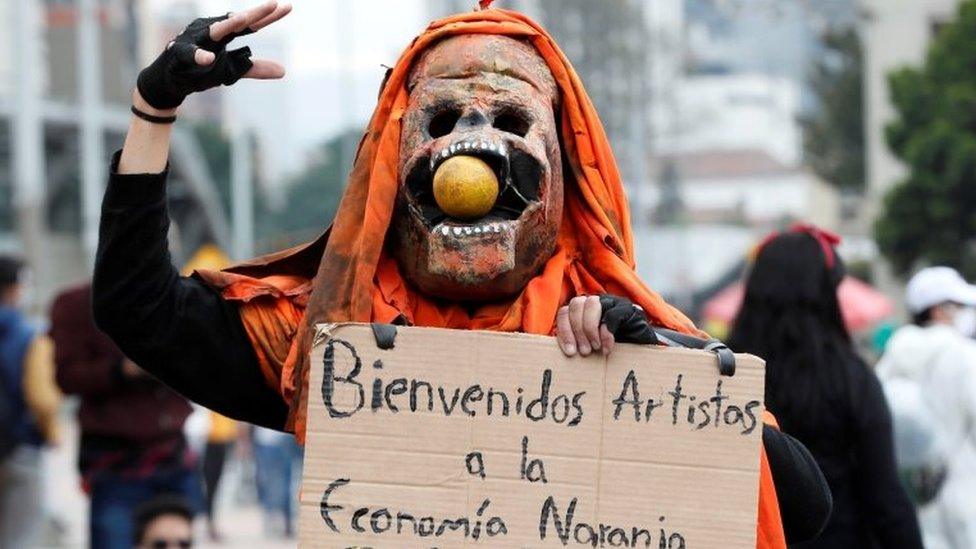
Artists who fear for their future were among those joining the demonstrations
Tens of thousands of Colombians joined protest marches in the country's major cities against a proposed tax reform.
Protesters took to the streets in defiance of a court order ruling that the marches should be postponed because of a current spike in Covid-19 cases.
Demonstrators clashed with riot police in several cities and one person is reported to have died in Cali in "an incident related to the demonstration".
The government says the reform is key to mitigating the economic crisis.

Many took issue with comments made by the finance minister who had underestimated the cost of a dozen eggs
Colombia's gross domestic product (GDP) dropped by 6.8% last year, its deepest crash in half a century, and the coronavirus pandemic has further driven up its unemployment rate.

In Medellín, police fired tear gas to disperse protesters
Colombia currently has one of the lowest tax revenues compared to other countries in the Organisation for Economic Co-operation and Development (OECD). In 2019, it collected 20% of GDP in taxes; only Mexico collected a smaller percentage among OECD countries.
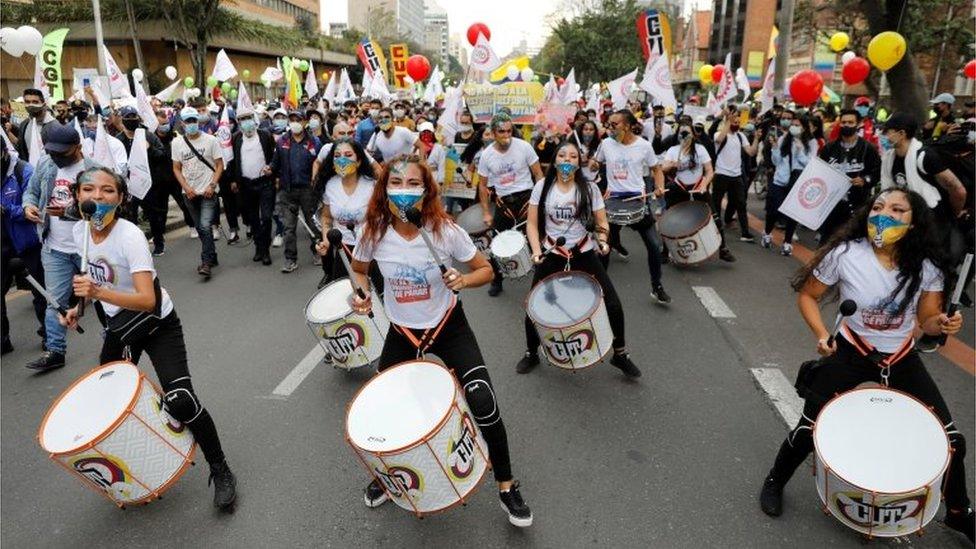
Artists and musicians are among those who fear the tax reform will make them worse off
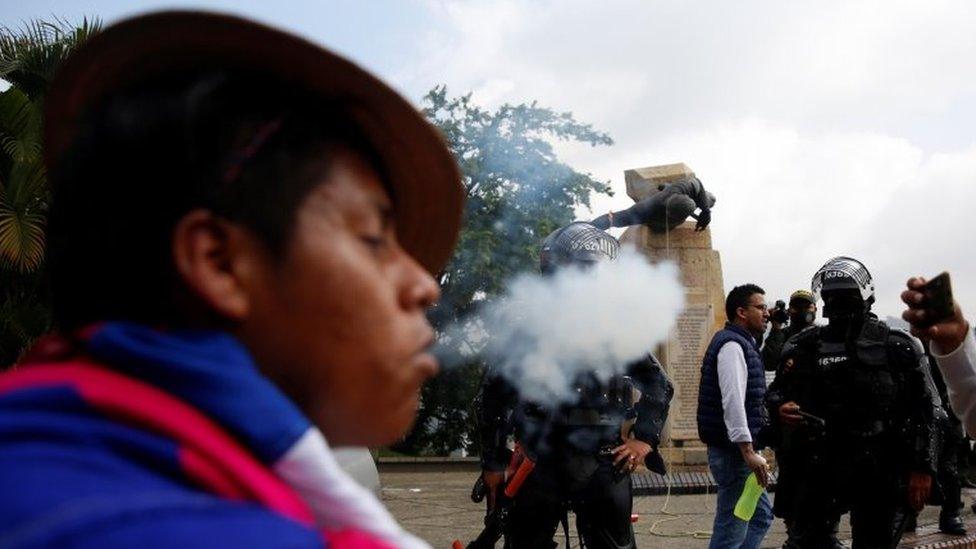
The protest in the city of Cali was joined by members of indigenous groups
The government of President Iván Duque argues that the time has come to increase the taxes it collects if it is to cover its spending.
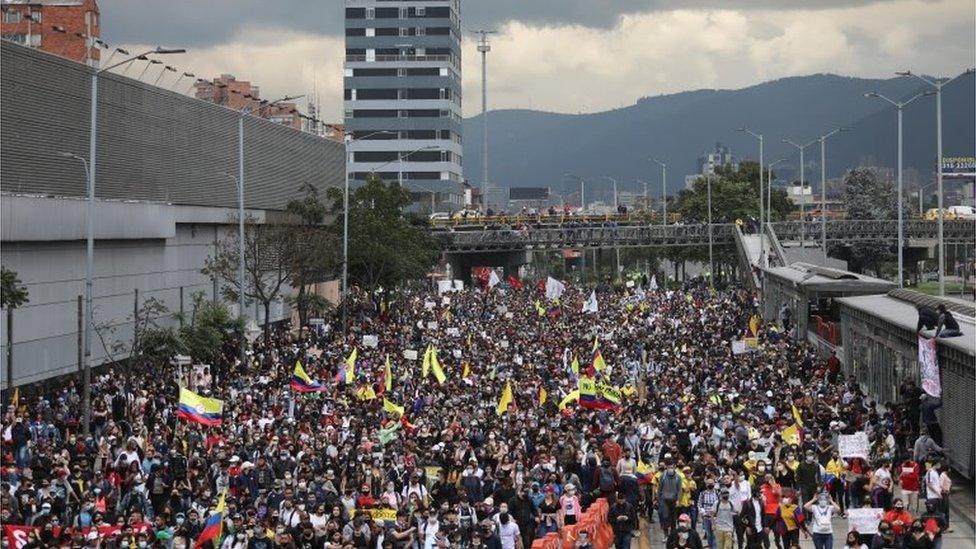
Protests were held in the capital, Bogotá, but also in other major cities
The proposed reform would lower the threshold at which salaries are taxed, affecting anyone with a monthly income of $656 or more.
It would also eliminate many of the current exemptions enjoyed by individuals, as well as increasing taxes imposed on businesses. The number of items on which value added tax (VAT) is charged would also increase.
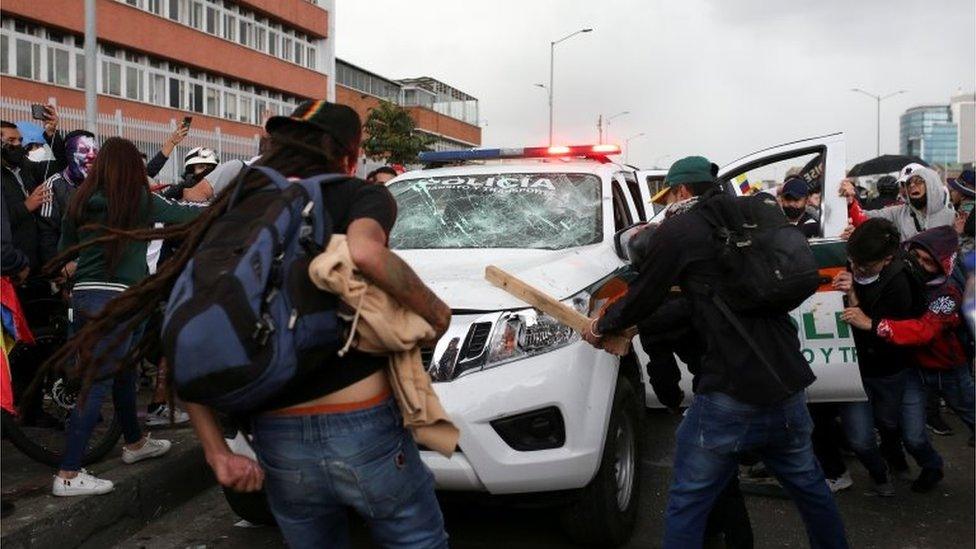
Dozens of protesters were arrested for alleged vandalism and dozens of police officers were injured
The proposal has caused outrage among many Colombians who say they are already struggling to feed their families during the pandemic.
The protest was organised by the country's biggest trade unions but was also joined by many middle-class Colombians and members of indigenous groups.
And while many of the demonstrators said they had turned out to oppose the tax reform, indigenous protesters in the city of Cali toppled a statue of Sebastián de Belalcázar, one of the conquistadors of Colombia in the 16th Century.
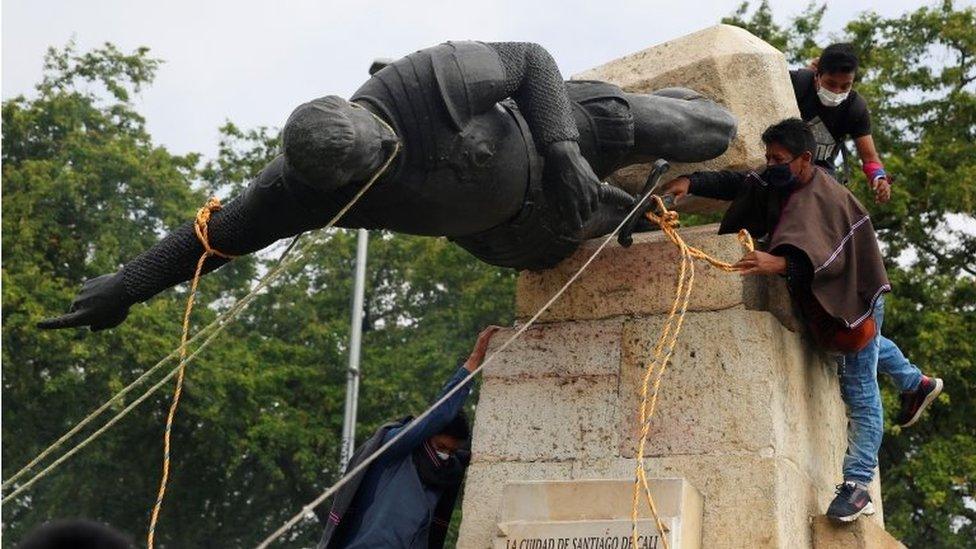
In Cali, indigenous demonstrators pulled down the statue of a Spanish conqueror
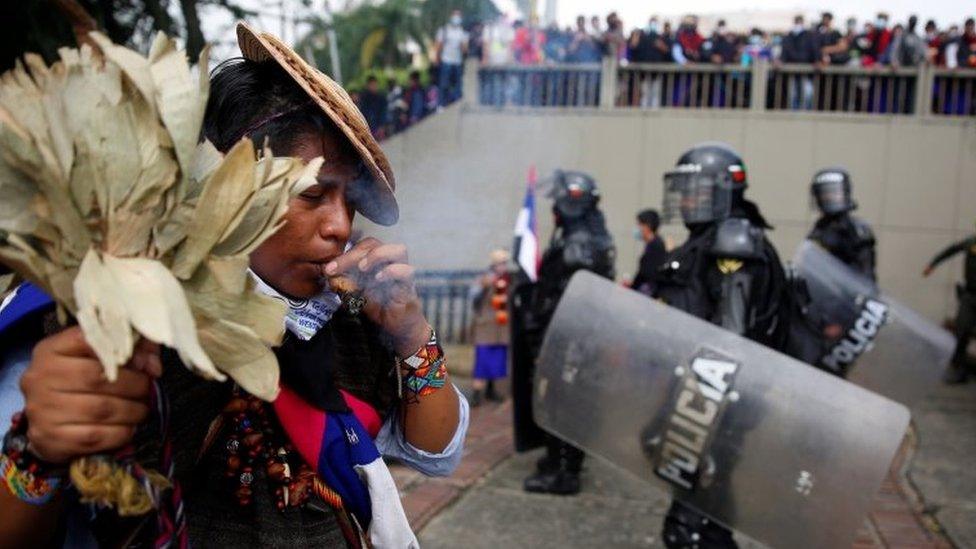
Indigenous protesters say the statue reminds them of the crimes committed against them by the conquistadors
Indigenous leaders say the statue of the Spaniard represented five centuries of genocide and slavery.

You may be interested in watching:
Violent protests in Colombia following man's death after he was repeatedly tasered (From August 2020)
Related topics
- Published19 November 2020

- Published20 October 2020
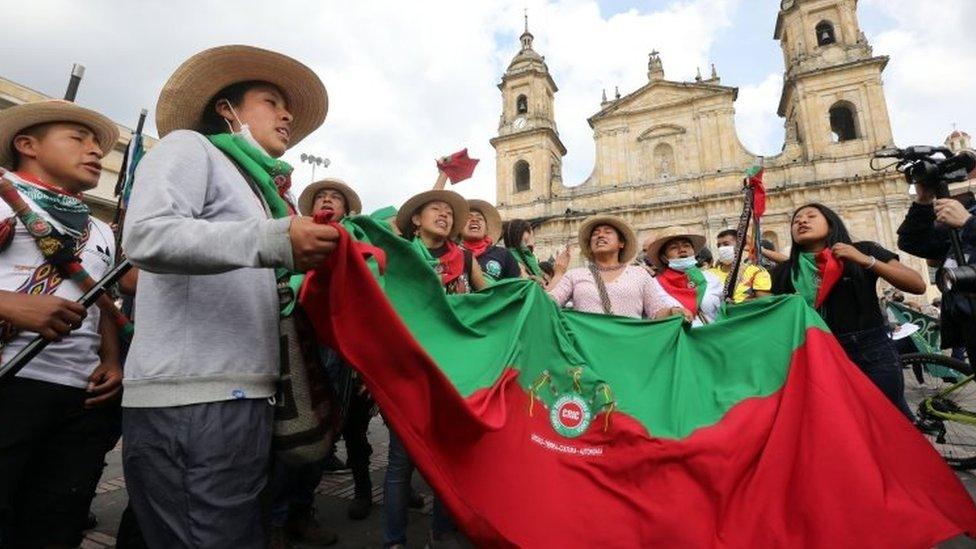
- Published10 September 2020

- Published11 May 2020
